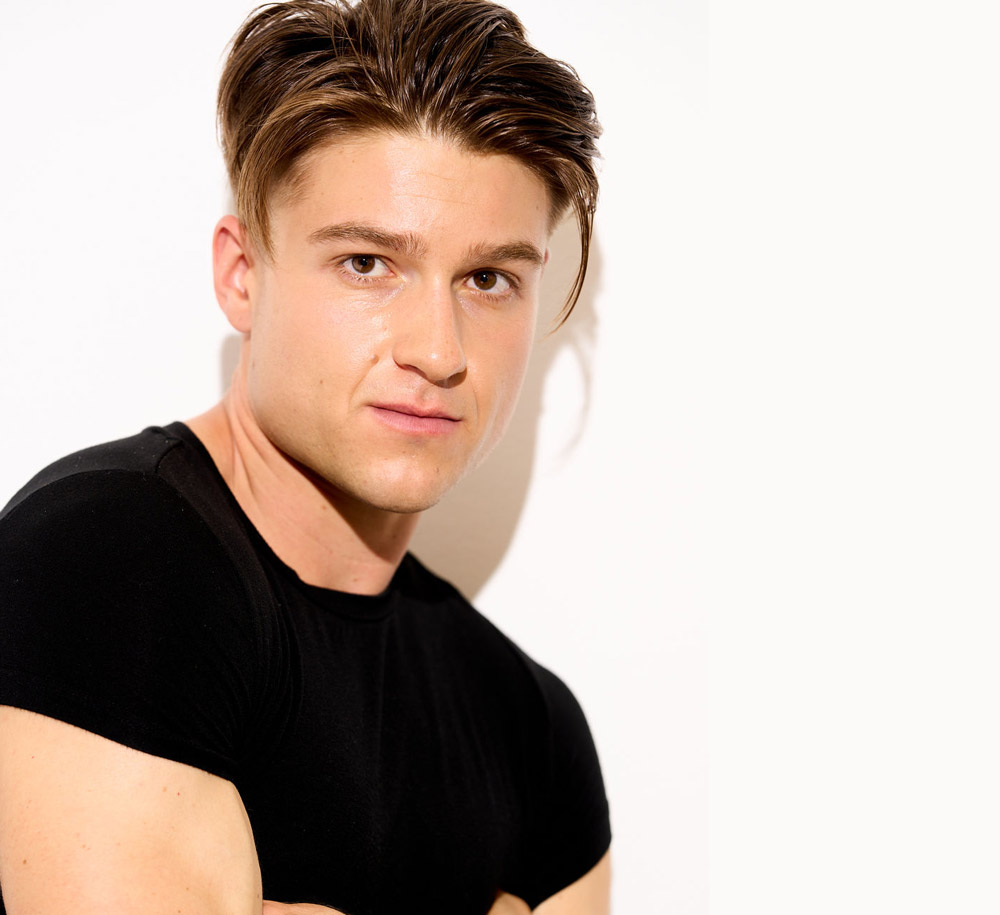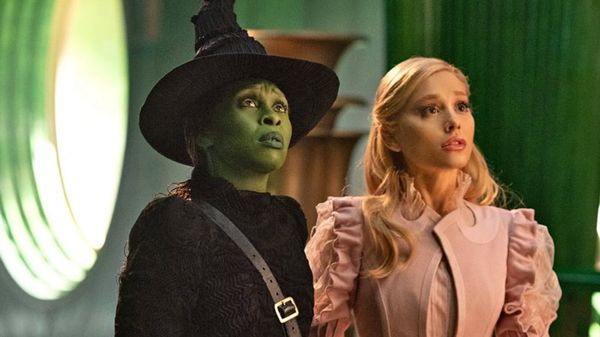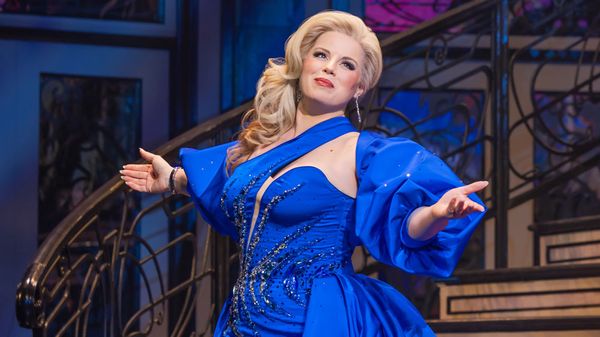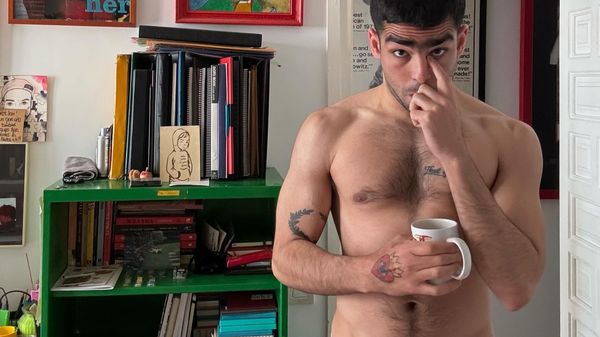Oct 21
Marval Rex on 'Rexodus' – Finding Himself in His Family's History
Kilian Melloy READ TIME: 7 MIN.

Source: Adam Hendershott
EDGE: You seem to occupy several intersectional spaces, which can be gloriously messy, as you put it in the show. Is that a driving force for yourself, and for artists in general?
Marval Rex Yes. I think of Catherine Opie, who is an incredible photographer. When a young artist asked her, "What's your biggest piece of advice?" she was like, "Follow your questions." I think the questions usually lie in these messy places, which are, of course, intersectional identities. When we don't have easy answers in life, we have to make art about it. Like, the questions come in and you're like, "What the hell do I do with this?"
I've healed some incredible pain through the process of just writing this piece, so yeah, I think if you're in a messy identities position, you're probably more geared to make something of it... to at least write a memoir or something.
Artists are harbingers of the future. I think artists help shepherd people. I think that's what "Rexodus" is trying to do, is shepherd people into the fact that we're probably all going to be maybe more inhabiting of these intersectional identities as we move forward into the world – and, also, what a joy to be in those intersectional spaces.
EDGE: You mentioned your mother and how she lets you channel her in the show. Was she accepting when you first came out?
Marval Rex Oh, absolutely. I will preface this answer by saying I am not a parent to somebody, so I cannot speak from the place of my mom. I was her only daughter. I have two brothers who were born male. I am her first child. And I am her favorite – I'm just gonna say it in the interview; like, who cares? We all know. So, it was hard for her. She handled it well, I think, compared to [the parents of] a lot of other trans folks I've spoken to. My father handled it supremely well – amazing for a man who was born in 1943; I'm pretty shocked. But my mother...
[Pauses]
The Spanish piece is really important to understand. Mediterranean countries have a very hard time with gender stuff because of Catholicism and history; the language is gendered. She felt like she was losing her daughter for, like, a year, and it was a hard year. I would say that people need to be able to grieve transitions in life, and that's valid. It can be hard, but I don't think that anyone should speed up a grieving process.
I felt that, too, in my own way; I really feel like I know what it feels like to die and be born again like a phoenix from the ashes. [My partner and I] both transitioned earlier than TikTok and Instagram, and we talk about how we didn't think we'd ever be able to have viable careers or jobs. When I transitioned, I was like, "I'm gonna have to live off the grid in the woods; I'm gonna have to figure out how to make money without being a real person." It's very different now, obviously.

Source: Courtesy of City of West Hollywood. Photo by Tony Coelho
EDGE: "Rexodus" is at the Elysian Theater in Los Angeles for one more performance on Oct. 25. [A previous performance was on Oct. 16.] Where might audiences hope to catch your show in the future?
Marval Rex We're filming these performances, so there is going to be a digital version at some point that will be much more accessible. That's going to be its own journey, and I don't know if it's going to be on a streaming service, but we're going to figure out where it lands.
In terms of live performances of the show, my production team and I are talking about taking the show to New York, which is a very Jewish city. There's a strong part of me that wants to perform in Barcelona, and then a few [other European] cities – Paris, London – if possible. This is just me fantasizing, but there's a strong urge to take it international. I can't say anything concrete at this moment, but the work is not going to just live in Los Angeles.
"Rexodus: Out of the Closet, into the Tribe" plays at the Elysian Theatre in Los Angeles on Oct. 16 and Oct. 25 at 7:00 pm.
Kilian Melloy serves as EDGE Media Network's Associate Arts Editor and Staff Contributor. His professional memberships include the National Lesbian & Gay Journalists Association, the Boston Online Film Critics Association, The Gay and Lesbian Entertainment Critics Association, and the Boston Theater Critics Association's Elliot Norton Awards Committee.







